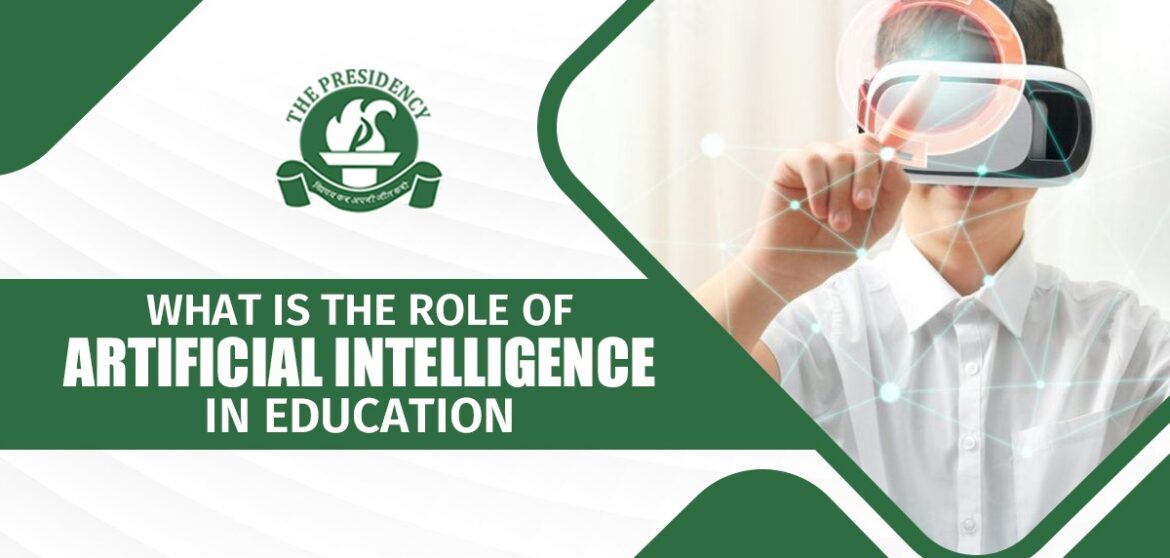What Is the Role of Artificial Intelligence in Education?
AI (artificial intelligence) technology has found its way into every part of our life, including our educational system. AI’s involvement in education may revolutionize everything from student engagement to teaching approaches. Thus, in today’sblog, we’ll look at the various ways AI is being employed in education. So, without further ado, let us begin!
4 Ways That Using AI in Education Helps Students Perform Better
PersonalizedEducation
One of the most significant benefits of AI in education is its capacity to adapt to different learning styles. AI technology is extremely adaptable to various learning methods. By taking things a step further, AI technology can analyze students’ historical performance and create personalized lesson plans and adjustments based on that data.
When it comes to personalized learning, AI can also help students to find resources and other helpful facts and information. AI can generate personalized study regimens for pupils without the need for involvement from learning professionals, all while accomplishing the main objective of making learning easier and assisting students in interacting with the content more effectively.
Tutoring
Sometimes students need a little more help and AI gives that access to on-demand tutoring without the requirement for an in-person or live Zoom tutoring session. AI tutoring systems are highly advanced in their capacity to target areas of strength and advancement to boost students’ education as a whole.
One of the major benefits of AI-based teaching technology is its capacity to facilitate widespread pupil understanding of challenging, advanced phrases and concepts.
Assessments and Grading
Grading assignments consume a significant portion of teachers’ time. AI technologies can assist to accelerate this process. Furthermore, when it comes to enhancing essays and assignments, AI technology can analyze and provide input on grammar, topic and vocabulary. With that burden being removed, teachersare able to devote their attention to more vital parts of teaching, such as lesson planning and student engagement.
Another significant benefit of automating assessments and grades is the elimination of human error, prejudice and mistakes. Furthermore, AI can also provide each student with a clear overview of where they went wrong and how they may improve, all while saving a teacher’s time.
Increased Student Participation
AI can keep pupils interested in instructional material and make studying more enjoyable. One of the ways teachers may incorporate AI into the classroom is by the use of Chat Bots. The ability of chatbots to personalize and adapt to individuals’ learning preferences opens up new avenues for keeping pupils interested. As Chat Bots are accessible at any time and from any location, students can work at their own speed and continue their learning outside of typical class times.
Three Ways Artificial Intelligence in Education Aids Instructors
We’ve spoken a lot about how AI can help students so far. However, there is a significant potential influence for educators as well, notably in terms of time savings. Here are the top three ways artificial intelligence in education benefits instructors.
Predictive Analysis
Predictive analytics is an intriguing and developing field of AI in education. AI can analyze data and anticipate which pupils are likely to fall through the gaps.
For educators, predictive analytics is intriguing because it means pupils with learning issues may be recognized early and given the tools they need to succeed. Furthermore, early intervention implies that kids who would have otherwise failed or struggled have the opportunity to become successful students by being provided with the necessary aid.
Improved Teaching Techniques
One use of AI in education is to improve teaching methods. With so much on teachers’ plates these days, there is frequently little time to organize other modes of learning without putting in additional hours outside of the classroom.
By leveraging AI technology, teachers can swiftly create games and simulations that help students practice and master the subjects being taught, saving them a significant amount of time.
Simplifying The Grading and Evaluation Process
If you ask any teacher, they will tell you that evaluations are one of the most time-consuming aspects of their work. A fascinating area of AI in education is the use of AI technology to improve and accelerate the assessment and grading process.
Assessments, for example, can be completed in real-time rather than having to undertake long markings at home. Not only does this save teachers time, but it also increases students’ knowledge of the content in real time.
Conclusion
While AI is still in its early phases in education, its potential and influence on revolutionizing the future of learning are enormous. When used to its greatest extent, it has the ability to totally transform the education sector, providing students and teachers with an atmosphere in which they may thrive.


